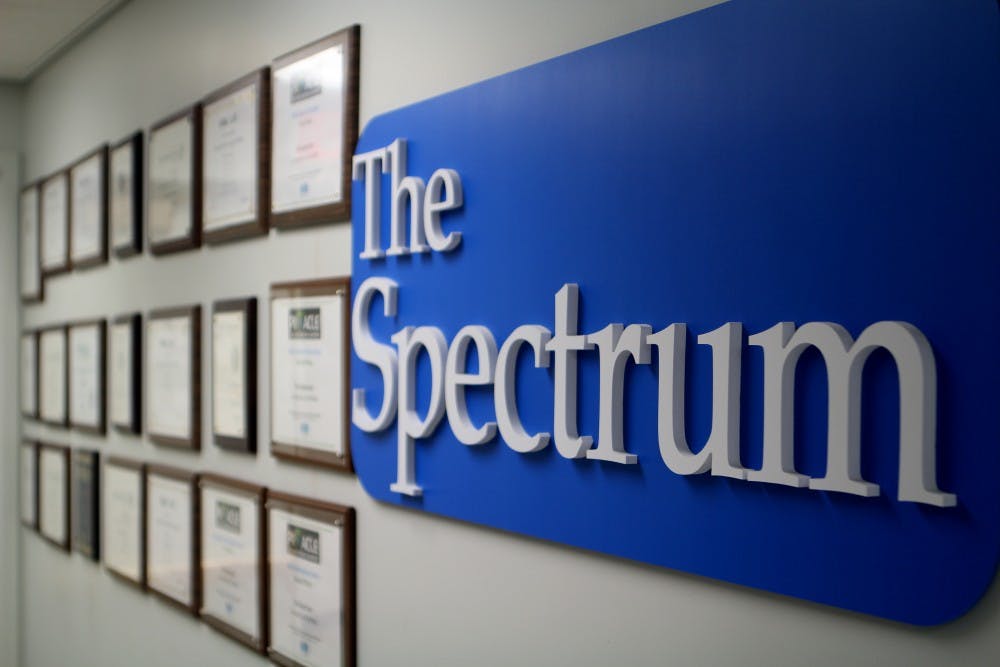Today is Student Press Freedom Day and to celebrate, I’d like to offer UB administrators a quick brush up on open records law. I do this because every semester Spectrum students have trouble accessing information that should be easy to attain, like budgets and salaries and meal plan purchases and student demographics.
I don’t think UB administrators and Student Association leaders would deliberately withhold lawful information from students. So I can only assume the problems exist because administrators and SA leaders are confused how a free press works.
Let me explain.
A few weeks ago, The Spectrum was forced to file a FOIL request to get the athletics budget. The FOIL officer said she couldn’t get us the budget until mid-March, because of the “University’s urgent and ongoing effort to respond to the COVID-19 public health emergency.” But slowing down the release of information we are legally entitled to because of the pandemic isn’t an acceptable justification.
It is a threat to democracy.
And during a time of great peril, the student body has a right to know how the school and its various decanals and divisions spends its money. How much does testing cost? How much is Athletics spending on travel? How much does UB profit from parking tickets?
We pushed back with Athletics and received last year’s budget. We are still waiting for the information about this year’s year-to-date expenses.
But there’s more.
Our senior news editor has spent weeks trying to understand how the Transnational Studies department suddenly became the Department of Africana and American Studies (AAS). We’ve tried, but almost no one will answer our questions clearly.
Our campus is a public place. We shouldn’t have to chase after people for answers.
And we shouldn’t have to beg for public information.
In the fall of 2019, our senior multimedia editor was working on a story about UB’s recycling program, but was denied permission to film janitors working on campus.
We still don’t understand why.
But here’s the thing: UB administrators aren’t dumb. They understand our limitations. As students, we are only on campus for 30 or so weeks per year. We are all enrolled in classes, which takes up a lot of our time. Knowing this, administrators will often bank on us losing interest or running out of time to write important, revealing stories.
This is worth addressing for many reasons. College publications have played an important role in watering many news deserts that are desperate for coverage. They have also fostered a sense of clarity that is essential in maintaining an ethical administration.
Despite the lack of transparency our team has encountered, this issue doesn’t seem to be unique. A recent case study examining censorship in college newsrooms concluded that, “Even years after censorship allegations led to legal action and, at times, national headlines, censorship concerns still exist at many publications. Four of the seven publications included in this research expressed ongoing concerns.”
The dissertation also indicates that, “Attempts to silence student journalists will likely result only in diminishing their opportunities to obtain journalism experience.”
In June, The Boston Globe reported that Northeastern students were battling similar problems. In the article, the student newspaper’s managing editor, Deanna Schwartz, echoes the realities of the aforementioned case study: “For a school that prides itself on being an experiential learning university, this stonewalling of student reporters contradicts that … It’s hard to present yourself as caring about journalism if you don’t talk to your student reporters transparently.”
On paper, UB is committed to a free press — hence the existence of our publication. But these commitments ought to be carried out in the form of actions, too. Our intent is not to lambast the university. Instead, we aim to seek facts and hold the administration accountable.
The questions we ask help foster a relationship with the student body, one we need to survive. When we cannot find answers to those questions, we can’t properly do our jobs and our credibility takes a hit.
In a time of great uncertainty, here’s something that should be a certainty: the university maintaining an open line of communication with its students. We’re here to be that bridge.
Jack Porcari is the assistant features editor and can be reached at jack.porcari@ubspectrum.com

Jack Porcari is a senior news/features editor at The Spectrum. He is a political science major with a minor in journalism. Aside from writing and editing, he enjoys playing piano, flow arts, reptiles and activism.





